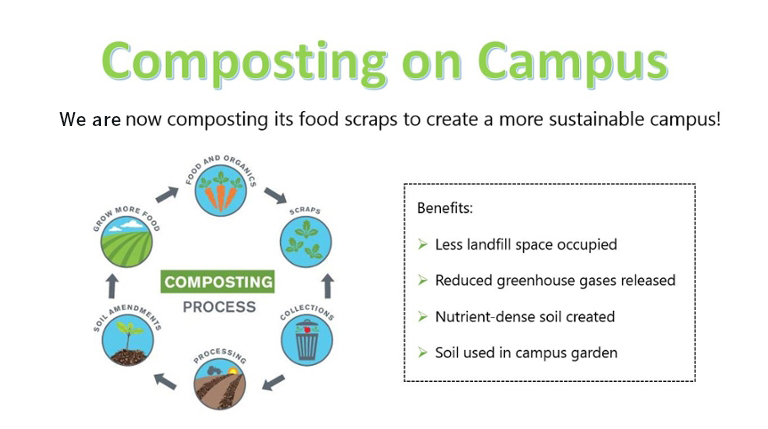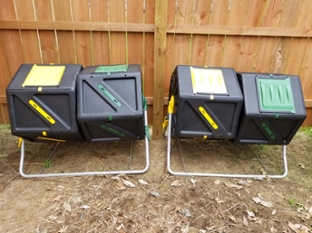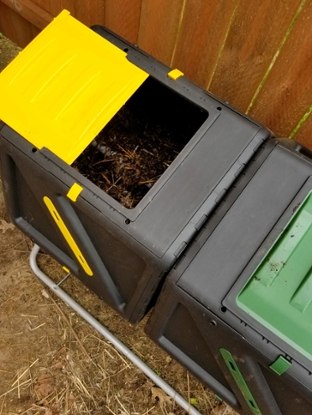
IU Columbus is now composting its food scraps to create a more sustainable campus! There are a few different materials necessary for the process. Brown matter, green matter, water, and two tumbling composters are the materials we used. Brown matter is used as a carbon source and includes materials such as shredded newspapers, dead leaves and wood shavings. Green matter is used as the nitrogen source and includes materials such as coffee grounds, tea leaves, fruit and vegetable scraps, and fresh leaves. The amounts should be kept at a 2:1 ratio of browns to greens. Water is necessary to keep the compost the consistency of a wrung-out sponge or optimal composting conditions. The 55 gallon composters are ideal for the decomposition of compost to usable soil in a reasonable amount of time. By using tumbling composters, decomposition can take place under aerobic conditions - with oxygen present.

How it works is that food scraps are collected from the cafe in a 5-gallon bucket and taken to one of the two tumbling composters on campus. From here, brown matter is added, typically shredded newspapers recycled from the campus library and dead leaves collected around the campus as well. Water may be added when necessary to keep the compost moist. Each day the composters are turned, allowing oxygen to be spread throughout the bin. Within approximately four weeks, the compost will be transformed into nutrient rich soil. This soil can then be used in our campus garden to grow more produce for the students to utilize.
Integrating this process on campus is important for multiple reasons. It helps to reduce IU Columbus's footprint and contributes to sustainability efforts already underway. Composting allows us to recycle food scraps into usable soil rather than taking up landfill space and releasing greenhouse gases. It also eliminates the need for store bought chemical fertilizers, thereby cutting costs. There is also the educational component that accompanies the process. We hope this encourages student, staff, faculty members, and the community to give composting a try!
If you are interested in starting your own compost pile/bin at home, the following link is a great resource: https://learn.eartheasy.com/guides/composting/

If you have questions or an interest in participating, please contact Barbara Hass Jacobus, PhD, Director, Biology Program, at blhasja@iu.edu


